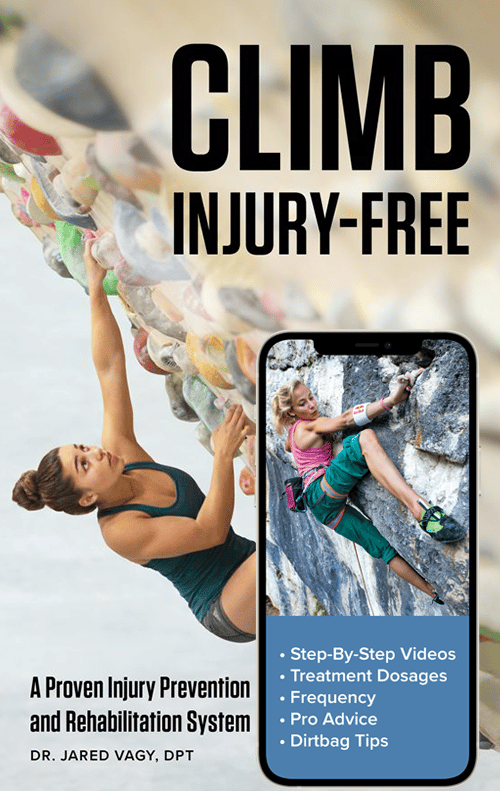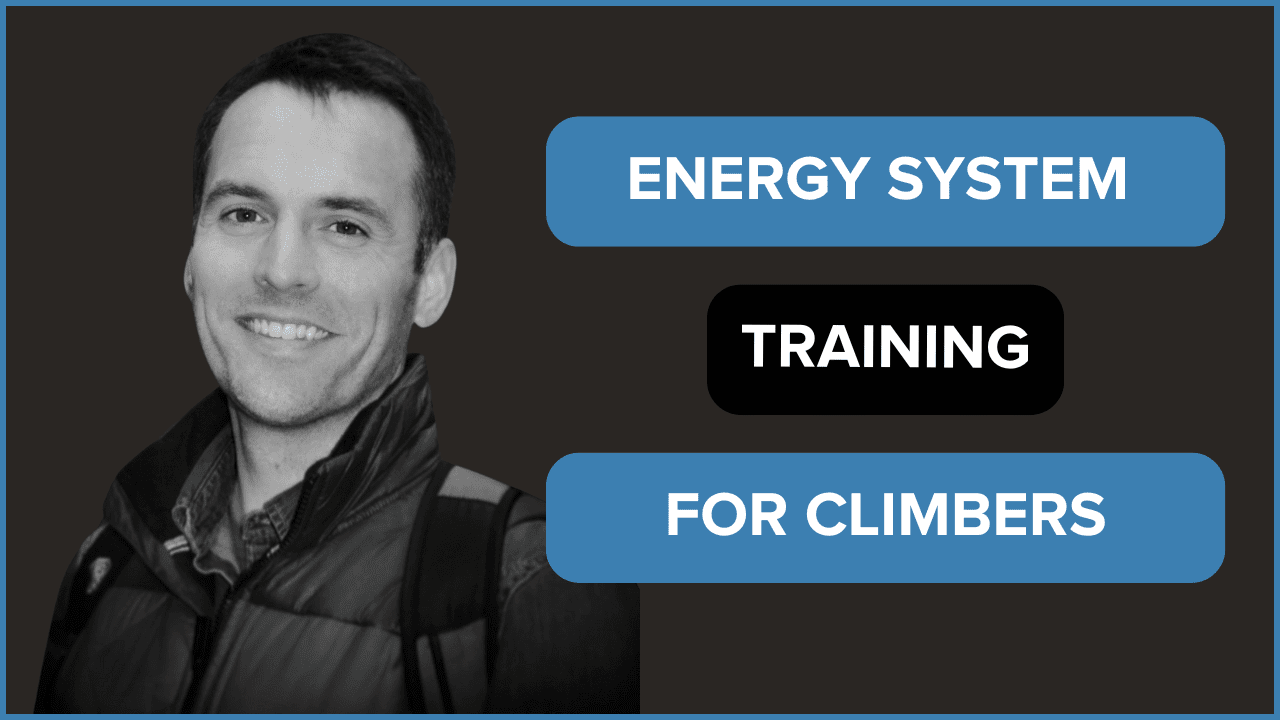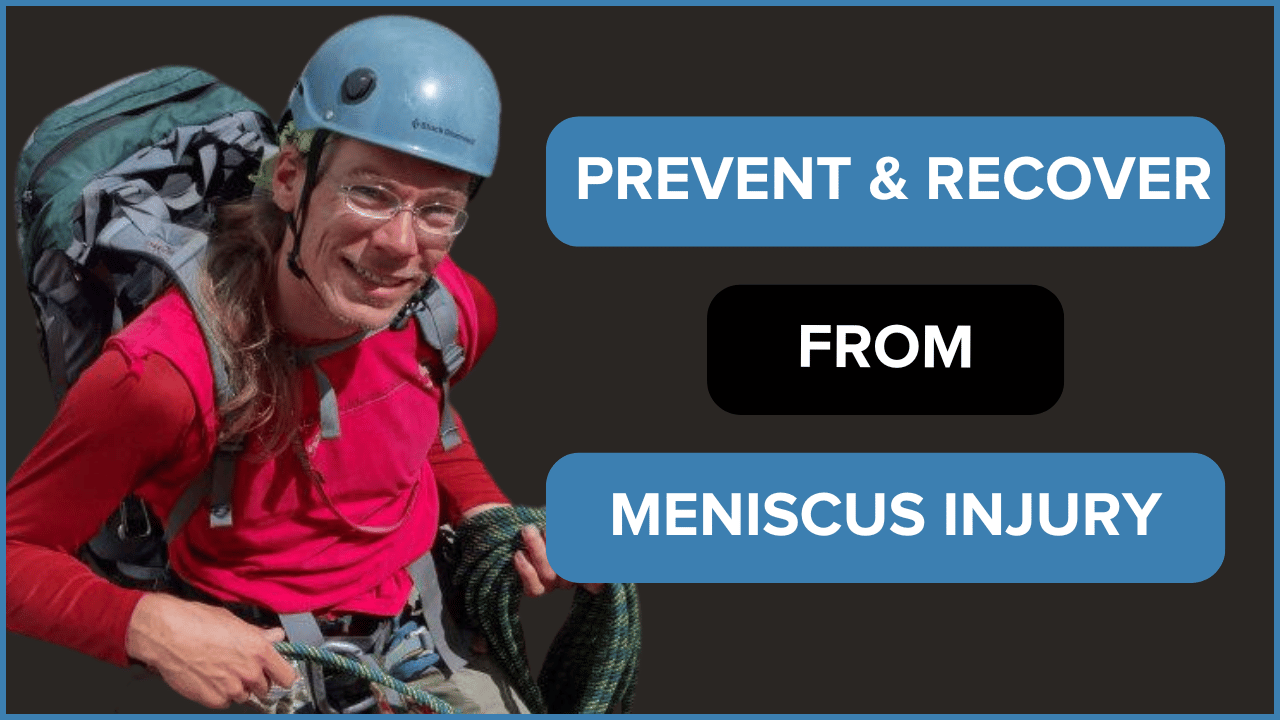S2, E3: Climbing as Therapy for Mental Health – Beth Scott
In this conversation, Beth Scott, an occupational therapist and passionate climber, discusses mental health in climbing and provides practical techniques for improving mental well-being. The conversation covers topics such as understanding mental health for climbers, the importance of grounding exercises, breathing techniques, and building community for mental health support. Beth emphasizes the need to address mental health in a holistic manner and provides tangible strategies that climbers can incorporate into their climbing practice. Overall, the conversation highlights the significance of mental health in climbing and offers valuable insights for climbers of all levels.
Beth Scott’s Bio
My name is Beth Scott, and I’m an occupational therapist in Oklahoma City, Oklahoma. I started climbing around 10 years ago when I began undergrad studies. I was uncoordinated and far from athletic, but realized I needed a way to meet people and simultaneously deal with stress. Each year after I became more interested (obsessed?) in climbing, and eventually began cross training, competing, giving lessons, coaching, and route setting at local climbing gyms until starting graduate school. The more I climbed inside and out, the more I saw large gaps in access to both indoor and outdoor climbing to Oklahomans of every ability level. An occupation like climbing can offer so much more than just physical health, and I want to help bridge those gaps.
Takeaways
- Mental health is a broad category that encompasses various aspects of well-being, including anxiety, depression, and neurodivergence.
- Grounding exercises, such as the five senses exercise, can help climbers stay present and manage stress and anxiety.
- Deliberate breathing while climbing can improve focus, oxygenation, and mental clarity.
- Building a supportive community and engaging in social activities can contribute to better mental health in climbing.
- Addressing mental health in a holistic manner is essential for climbers to optimize their overall well-being and performance.
Listen on Apple Podcasts, Spotify, or wherever you listen to podcasts!
Timecodes
- 00:00 Introduction
- 01:26 Understanding Mental Health for Climbers
- 03:30 Mental Health is Not Always Negative
- 05:18 Practical Tips for Improving Mental Health
- 06:00 Grounding Exercise: Five Senses
- 09:56 Breathing Techniques for Mental Health
- 23:26 Building Community for Mental Health
- 33:17 Final Thoughts
If you would like to listen to the entire interview with Beth Scott, check out the podcast. If you want to watch the interview, click the YouTube link or any of the timestamps above. If you would like to read quick sample of the interview, check out the excerpt from the interview below.
I am here with Beth Scott. Beth, can you introduce yourself?
Yeah, absolutely. Well, I’m Beth Scott. I’m an occupational therapist in Oklahoma City. I’ve been climbing for almost 11 years. Very, very passionate about it. Got passionate about climbing before occupational therapy, but then the two just kind of naturally molded together. So here we are.
What is mental health for climbers? I know that’s a very open-ended question, but are you able to describe what it is and then we’ll get into some deeper aspects of really how to improve mental health.
Yeah, well, I think for one, it’s a really broad category. It’s just mental health in general is a huge umbrella. And when it regards to climbing, it’s probably looking directly at climbers who experience some sort of mental health illness. The most common ones that we talk about are like anxiety and depression or OCD, things like that, but it can go deeper into more like psychological difficulties or even difficulties that come associated with being neurodivergent – which is usually someone who has different sensory processing difficulties, so maybe like autism or ADHD and that kind of thing. Their brains just work a little bit differently and climbing can be extremely therapeutic for them and for other illnesses for a number of reasons as well.
There are different clinically diagnosed mental health challenges as you mentioned, but then there’s also mild versions that all of us likely have as individuals, right? So I want people listening to understand that this, what we’re going to talk about applies to everybody?
Yes, absolutely. And I think that sometimes we have those little things on our shoulders that will prevent us from going to the gym like a couple days a week or something like that. And so this can really apply to that climber who gets stressed really easily or gets down on themselves really easily and seeing those more mild versions as well. Yeah.
Are mental health challenges always negative things?
I think a lot of times the connotations become negative, like it’s this like horrible thing, but most people deal with these things on a regular day-to-day basis. And so if you always look at it negatively, then it’s going to make it really hard. But if you see it’s like, oh, well, this is just another thing. I just exercise and warm the warm up my brain in the same way I exercise and warm up my body. Then it puts a different light on it. But there’s other more positive, like mental things that go on of being so excited to be at the gym that you never stop going and you over get all these overuse injuries and so sometimes even like the most positive form of being like so amped and so ready to go can also cause its own problems.
So like being super psyched is a mental health challenge as well, right? Just being psyched on climbing so much, or even like psyched on training and not climbing, just training.
Yes, and things like that are almost never talked about. Like, oh, can you really train too much? Yes. Yes, you can.
Alright. So that makes sense. This podcast or this, you know, this interview, this discussion, like it applies to basically everybody. So let’s dive into some ways that we can start to work on this.
Well, I think one thing is that a lot of times we like to compare ourselves to other people. We like to look at that person who is climbing like 5.14s or 5.15s, and we’re like, oh, I should be climbing that hard and I’m not. And that, I mean, that applies to a lot of different areas of our lives too. And so I think one of the first steps is to kind of take a step back and look at like, what are your values? Like, what do you really like about climbing? Why did you start? Because most of us start because it’s fun or because it’s challenging or because it’s a good community. And if you lose sight of that, then it’s going to make everything a lot harder. So first step is really just taking a step back and realizing like why you’re here and not necessarily to climb as hard as you can, but maybe because you enjoy just being with the people that you climb with or you enjoy the community or whatever it might be.
So you’re saying step one is really finding that purpose and why you started climbing in the first place. So then, how do we find that? Do we just sit down and we write it down or do we find a way to go into deep contemplation?
Well, I think different things work for different people. But one thing that I often have my clients do is actually to create a values list and it’s basically just listing out all of the things that they value in life, not just in climbing, but like in life. And so some of those things might be like, I value honesty or I value challenge or I value adventure or things like that. And then once you have that list, then you can look at it and be like, okay, so what of these things can I experience in climbing? And a lot of them, most of them actually you can experience in climbing. And then from there you can kind of start breaking it down even more and say, okay, so I value honesty. Well, how can I be honest with myself and where I am in my climbing journey and where I want to go and not necessarily lying to myself about where I am or where I think I should be?
I love that as a first step because it’s like, it’s so foundational. And then do you have people write this down? Do you have people think about this regularly? Is this a one-time thing or is this something that they’re always coming back to?
I think it’s good to come back to it regularly because I think that it’s something that, you know, it’s always changing. Like maybe you get really excited about one thing and then that kind of wanes a little bit. And so maybe you need to like look at your values again and be like, okay, is this still something that I value? And is it still something that I can find in my climbing? And so I think it’s a good exercise to do maybe once a month, maybe like when you’re feeling really down on yourself, or just kind of when you’re needing like a reset or something like that.
Yeah, it’s good to come back to it, because it’s going to change over time as you evolve as a climber and as a person. So, what’s step two?
So I think step two is a little bit harder and that’s, once you kind of know what your values are, then it’s really, really hard to actually apply them to climbing because it’s, it’s easier said than done, right? And so I think from there, it’s really, one, just being really intentional about what you’re doing when you’re at the gym or when you’re outside. So not just kind of going through the motions of climbing, but actually thinking about like, why am I here? What am I trying to do? What are my goals for today? What are my values? How do those align? And then I think another part of that too, is once you’re actually on the wall, it’s learning how to like, apply those in the moment because it’s, again, it’s easy to be like, oh, I value challenge. But then when you’re on a route that’s like, harder than you want it to be, it’s really easy to like, back down and say like, oh, I can’t do this. But then it’s like, okay, but you value challenge. And so how can you apply that value in this moment? And that might look like just giving it a shot or whatever it might be.
So it’s really just being intentional and then applying those values. What I like about this is it’s not necessarily about climbing harder. You don’t have to be climbing 5.13s or 5.14s to apply these values. You can be climbing 5.7 or 5.8 and you can still apply these values. And I love that.
- Disclaimer – The content here is designed for information & education purposes only and the content is not intended for medical advice.




